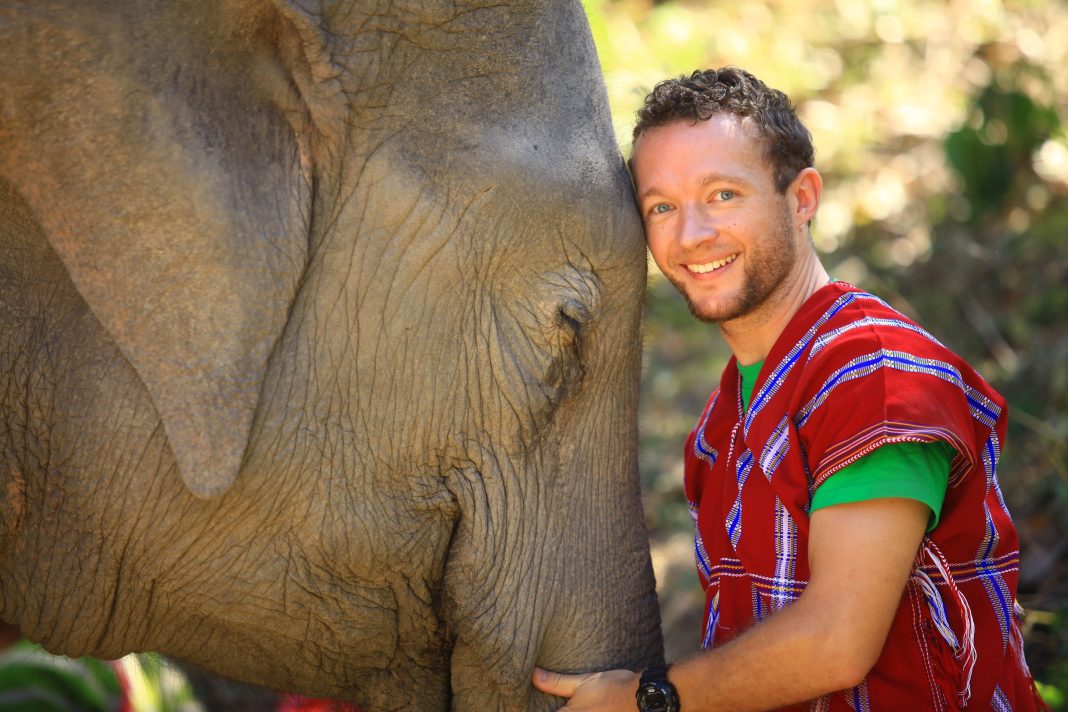What links an elephant habitat and sustainable cities? Today we’re challenging the way we look at urban sustainability by standing at the vantage point of outwards looking in – from the forest to the city. Chris Kaiser, founder of Click A Tree and reforestation entrepreneur, walks us through the urban and environmental opportunities of agroforesty and how commercialising a good cause can cause a ripple effect of advantages.
Many of us had the same geography lessons at school about the devastating impacts of cutting down rainforests.
Trees are removed for timber, mining, or farmland. Nutrients get leeched from the soil. Without vegetation to hold it together, the soil washes into and clogs the waterways. Species die. The food chain withers. Land, once rich in biodiversity, becomes a barren desert and humans are forced to move on.
That’s maybe oversimplifying the process, but it’s a true enough summary.
Forests are homes, and, by removing those habitats, logging directly leads to a decline in wildlife.
This is what Chris Kaiser witnessed while working in Thailand for five years in very close contact with elephants. It left him despairing – hopeless – to see his beloved elephants suffer.
But Chris is a relentlessly positive soul. We didn’t need to speak to him for long before realising this! He is also a man of action. Clawing hope from hopelessness, our CityChanger reasoned that he could save the elephants’ home by replanting it.
Click A Tree
As a hobby, Chris began identifying plots of land to reforest with local species.
Word got around. The cause struck a chord with so many of his contacts that they donated money for more trees. It quickly grew, and, when Chris returned to Germany, he set up Click A Tree as a business.
The initiative is now active in 13 different countries, most prominently in Thailand, Ghana, and the Philippines. All plantations are in the tropics, for good reasons:
- There’s no winter season to slow growth, meaning forests replenish as fast as possible.
- The biodiversity here is so much higher, meaning “the trees there have a lot more impact”.
- These regions are in desperate need of new jobs, which Click A Tree provides.
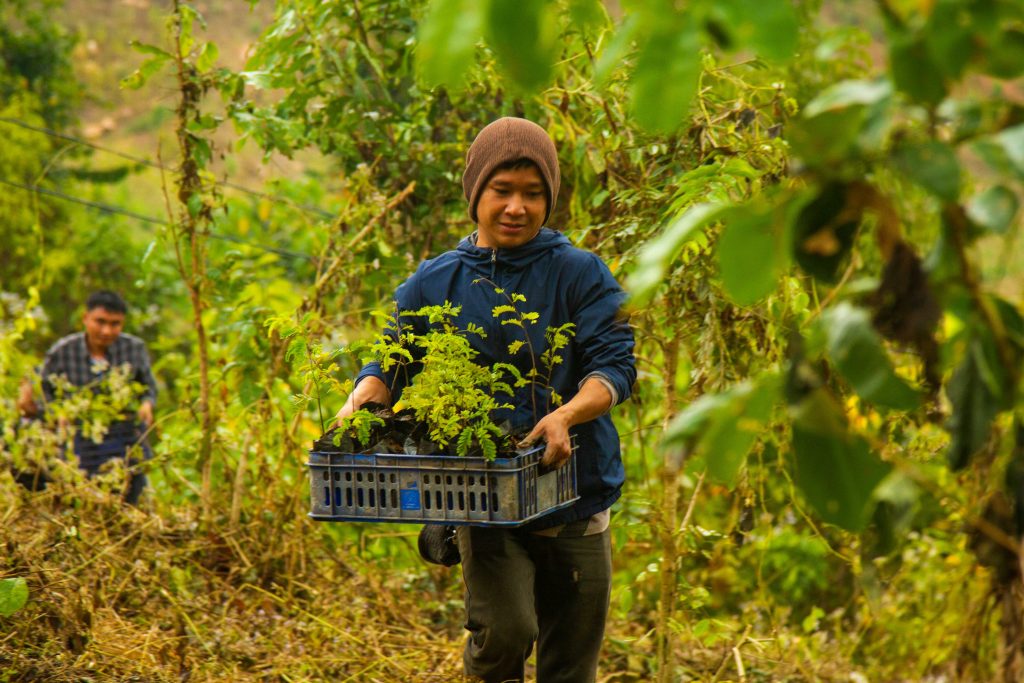
On that last point: Chris is careful to avoid any semblance of sustainability colonialism.
Global Sustainability on a Local Level
Unlike in the early days, when he was planting seeds solo, the plantations remain local operations.
“It’s not like the Sunday afternoon activity where you go out and push a few seeds in the ground,” Chris tells us. “It’s years and years of dedicated work and maintenance to turn it into a forest.”
Chris is adamant that any land used for plantations remains in the hands of local communities, who make up the paid labour force exclusively: permanent jobs, no seasonal labour, no volunteering.
Seeds and saplings need to be protected and nursed to maturity if they’re to survive. This only succeeds because local people act as guardians of the forests.
If those people dedicate their time to protecting our planet, they should be the ones getting the most out of it.
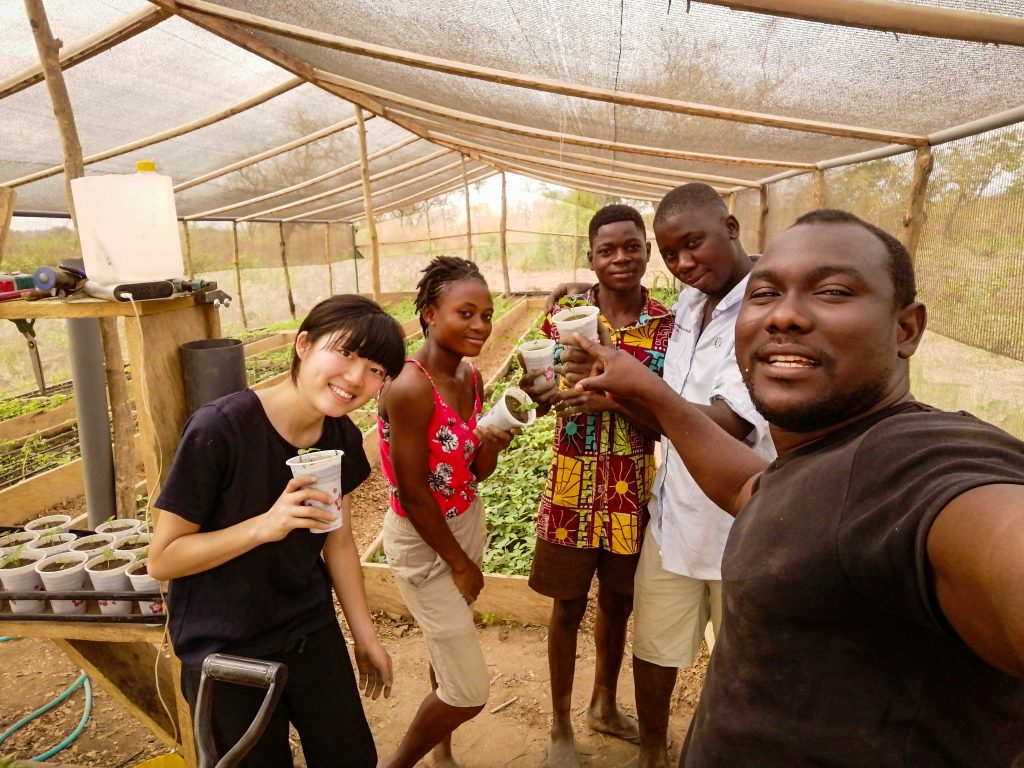
The Science of Reforestation
For forests, like all aspects of life, diversity offers the best outcomes.
Mono-plantations are cheaper to run than multi-species ones, but these types of forests just don’t exist in the wild. We gain a lot by imitating nature. A plantation containing many species has the highest resilience to climate change. But that’s not to say we can’t use it to our advantage. In fact, we definitely should!
Taking the Agro Out of Forestry
In his attempt to make reforestation as attractive as possible, Chris opted to plant agroforests: forests that contain crops, building “synergies with the bananas, the cashews, and the lemon”.
From a wildlife perspective, this has advantages. “The birds start eating the fruit and then they spread the seeds.” The forest expands naturally.
Also, crops can be cultivated.
Bananas, for example, are quick growing: they create a lush forest within just three years. Cutting the stems and laying them on the floor slows evaporation exceptionally well and benefits surrounding plants, as water is released gradually in scorched climates.
Furthermore, people can eat and sell the fruit.
Making Forests Pay
Back in Thailand, our CityChanger asked local communities why they chop down trees despite knowing that it’s illegal.
“Nobody ever told me I hate trees, so I cut them down,” Chris jokes. But he’s right: there’s no spite to it. Logging serves a need.
One person might need cash, so they sell the wood, or make a fire to cook or keep warm. Others clear the land to expand their farms to provide for their family.
Their reasons are social and economic. Therefore, so must the solutions be.
This knowledge had a major influence on Click A Tree’s model. It wouldn’t be enough just to grow a forest; it had to provide a financial boon for people and places, too.
As a long-term commitment, reforestation equates to long-term economic prospects for those employed to plant, nurture, and maintain the trees. This puts it in the community’s best interest to protect a forest.
“That does change the minds of the people,” Chris notes, “because suddenly they understand they can earn money for making sure that nature stays intact.”
Back to School – Recycling Plastic
These neighbourhoods are also learning that environmental preservation creates brighter futures, too.
In the Philippines, Click A Tree has partnered with a local company to collect one kilogramme of plastic from the beaches for every mangrove tree they plant.
When thousands of kilos of plastic stacked up, they decided to use it as a force for good: moulding it into school chairs with a desk attachment.
Kids who previously sat on the floor now enjoy a brighter, more comfortable learning environment.
“It’s really cool to see the kids sitting there being super happy. Until that moment, I never thought about the value of a chair. But not everybody has this privilege.”
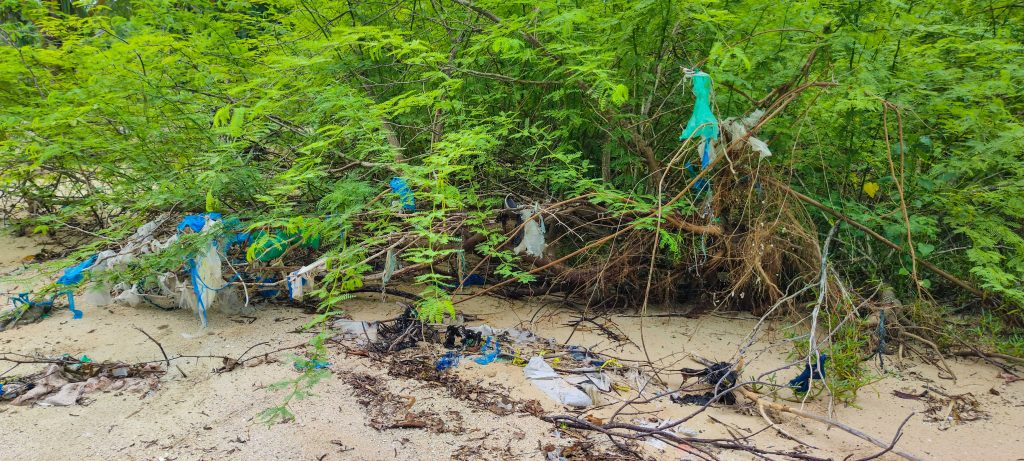
From this… 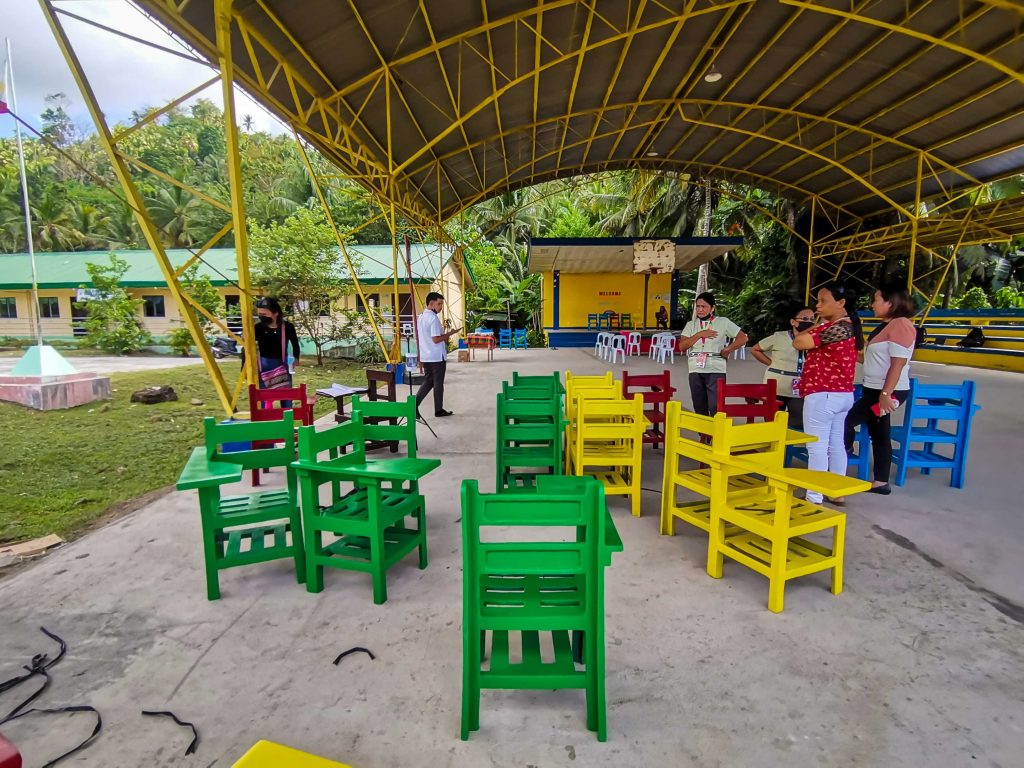
… to this… 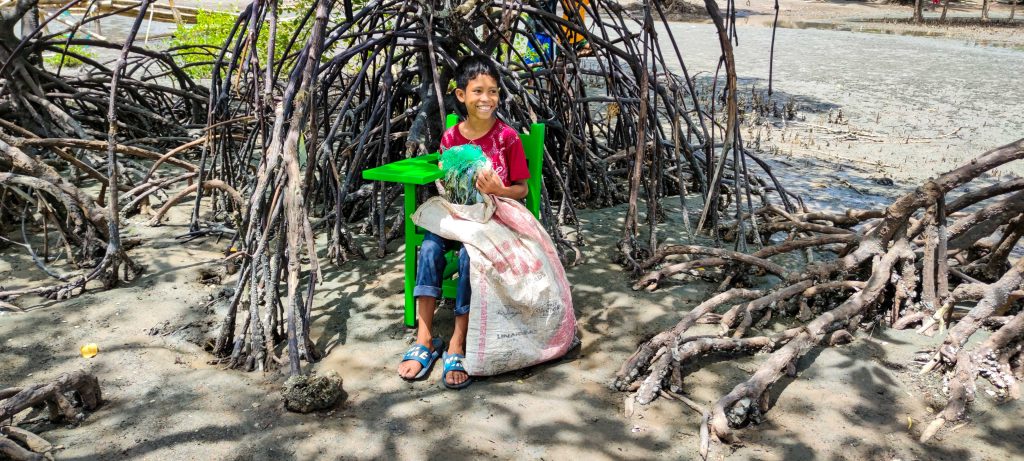
… to this.
.
The Challenge of Human Short-Sightedness
There’s a barrier to getting folks outside of initiatives like Click A Tree to commit to reforestation projects: humans are terrible long-term planners!
Chris compares it to a fashion sale: a time framed event that gets us to act by playing on our fear of losing out. But planting a tree? That can be done tomorrow.
Not forever, though. One day, tomorrow will be too late, as this clock counting down the remaining time we have to prevent cataclysmic climate change reminds us:
So, how can we convince the prevaricators to act?
“That’s why we go down this salesy, capitalistic route,” Chris reveals.
Our Friends, Capitalism & Ego
Click A Tree is a business which its founder promotes as a marketing tool.
Going public about financing reforestation allows organisations to prove their green alignment. Chris supports them in leveraging this to increase their sales and attract customers and sustainability conscious talent.
The beauty is that we do something purposeful and valuable.
Believe it or not, Chris finds that everyone has a reason to get behind reforestation, even those typically sceptical of [activate angry white man voice] ‘irritating woke issues’ like climate change.
Occasionally, someone questions why Chris plants trees in Asia or Africa instead of on home turf in Europe. Well, as we know, he doesn’t. But even they agree that planting trees is worthwhile because it creates jobs and new opportunities.
What’s really ingenious is Click A Tree’s approach to reinvestment.
The more trees the company plants, the cheaper the unit price becomes. Rather than ‘selling’ supporters X-number of trees at a variable cost, Chris uses a price-per-tree system.
This means more trees can be planted and it funds new community projects.
Getting Down to Business
Without a business background, Chris needed help getting Click A Tree off the ground.
He signed up for a business mentorship programme. “Having these people to go to for advice was so valuable.”
So inspired was he, that Chris decided to replicate the idea.
Now well established, the entrepreneurship school teaches young unemployed people in Ghana aged 16 to 25 to become self-sufficient business owners. The year-long course is almost fully funded by Click A Tree. Participants are encouraged to follow their passions, establish services that meet the needs of their communities, and to aim big.
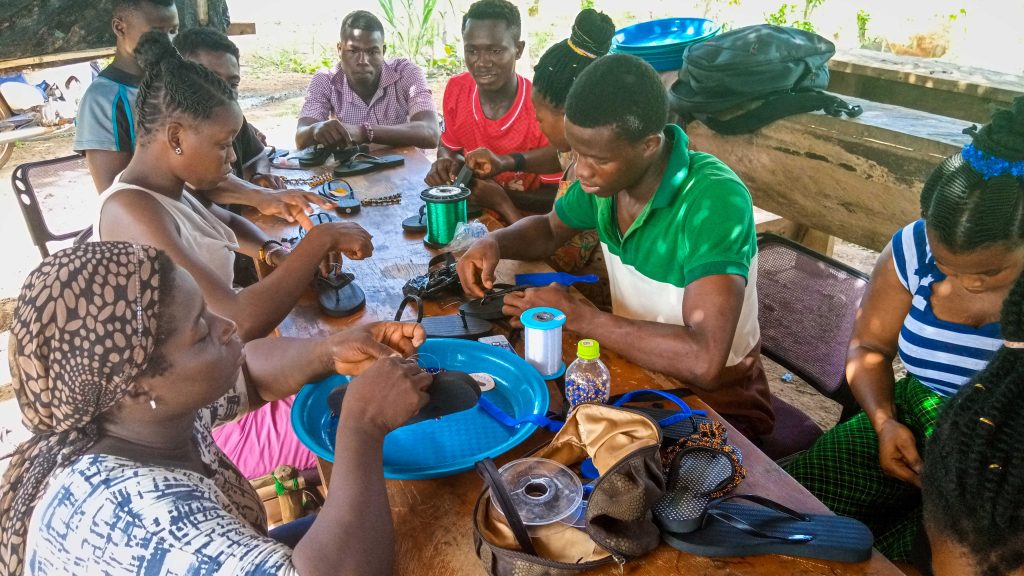
Participants complete classes in the fundamentals of entrepreneurship: market research, business plans, accounting, marketing, computing, social media, etc.
“Many of them might have never used a computer before,” Chris points out. These skills set young businesspeople up to flourish locally and on the international market.
“It grows their aspirations,” Chris chimes. “That’s what we love.”
In October 2022, Chris opened a second school in Tamale, Ghana’s third biggest city. Cohorts of 40 now pass through the programme annually.
It really transforms the urban area because it helps them to bring value into their cities. It is the value that these cities need.
One graduate – an artisan who creates ornate backpacks, jewellery, and other goods from beads – now trains a handful of other youngsters.
The school is helping societies challenge expectations, too. Chris got talking to a jewellery seller one day and discovered her aspiration to become a tractor mechanic. She joined the entrepreneurship school and managed to land her dream job – usually, Chris acknowledges, the reserve of men.
“It’s so cool to see the snowball effect. There’s so much education happening, and it’s really transforming neighbourhoods, communities and, ultimately, cities.”
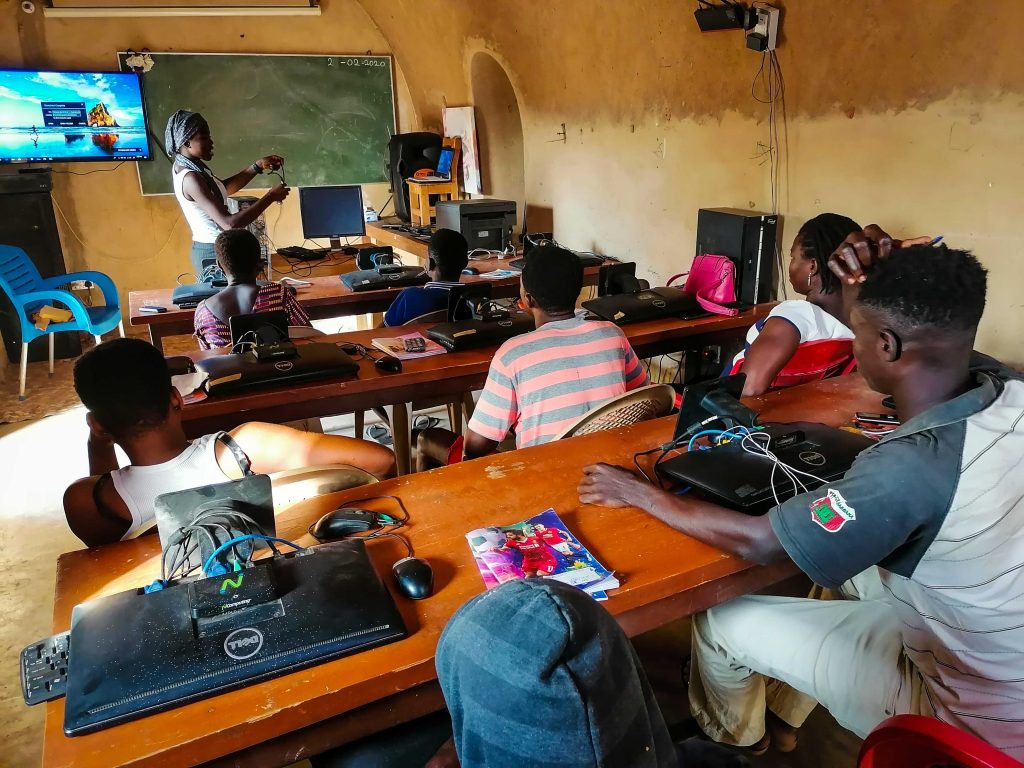
More Information
Clearly, money is better invested in tropical reforestation than in faceless carbon offsetting projects. If your business wants to contribute to a sustainability project that promises equity, urban prosperity, and environmental resilience, check out the options.
Our CityChanger’s final message is that now is the time to act. To quote Chris one last time: “In 10 years’ time we will only regret the things we have not done. And, especially when looking at climate change, this is now truer than ever.”

